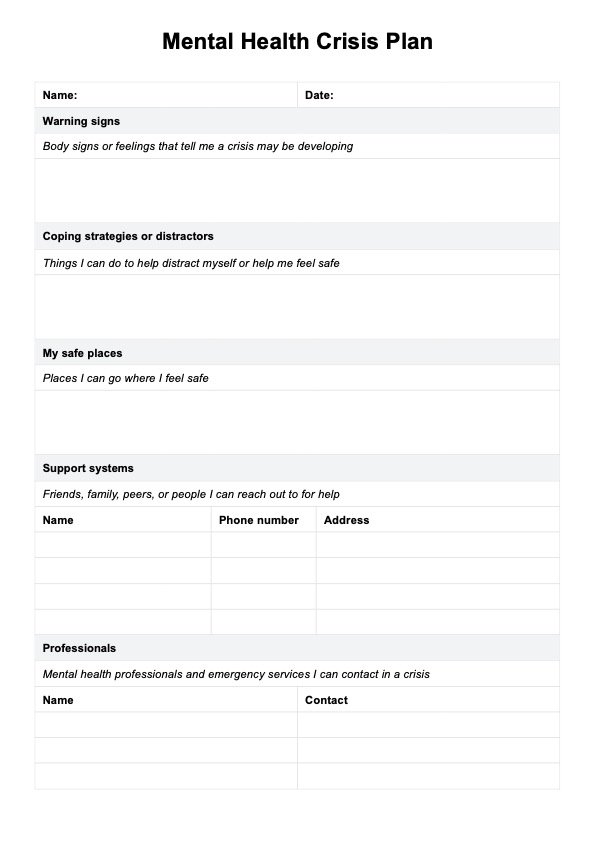A Mental Health Crisis Plan is a personalized document designed to prepare individuals and their support networks to manage crises. It includes information such as coping skills, early warning signs, crisis triggers, and emergency contacts. Having a crisis plan ensures that individuals and their support team know how to act quickly and effectively when a crisis occurs, reducing the risk of harm and helping to promote mental health.

Mental Health Crisis Plan
Be ready for severe mental health situations with our Mental Health Crisis Plan. Ensure peace of mind for you and your client with a prepared, actionable plan.
Mental Health Crisis Plan Template
Commonly asked questions
Anyone with mental health conditions, such as anxiety disorder, depression, or a history of substance abuse, can benefit from a crisis plan. It’s particularly useful for those at risk of sudden behavioral changes or escalating symptoms. The plan can also support family members, therapists, and trusted persons in providing care during emergencies.
A psychiatric advance statement or directives are legal documents that outline an individual’s preferences for care during a mental health crisis when they may be unable to make decisions. While a general crisis plan focuses on practical steps and support, these legal documents ensure that treatment aligns with the individual’s wishes and may include instructions about specific medications or interventions.
EHR and practice management software
Get started for free
*No credit card required
Free
$0/usd
Unlimited clients
Telehealth
1GB of storage
Client portal text
Automated billing and online payments











